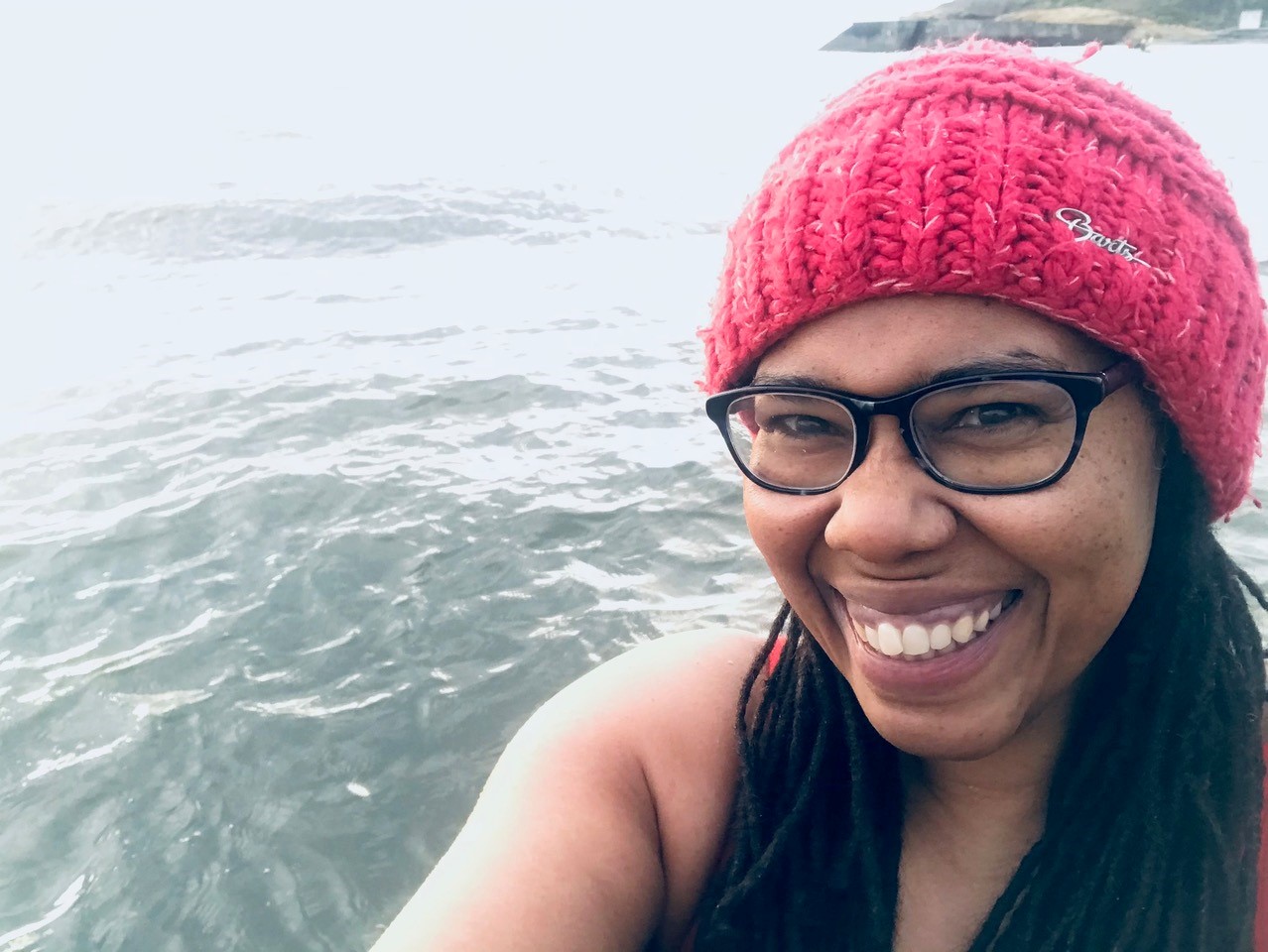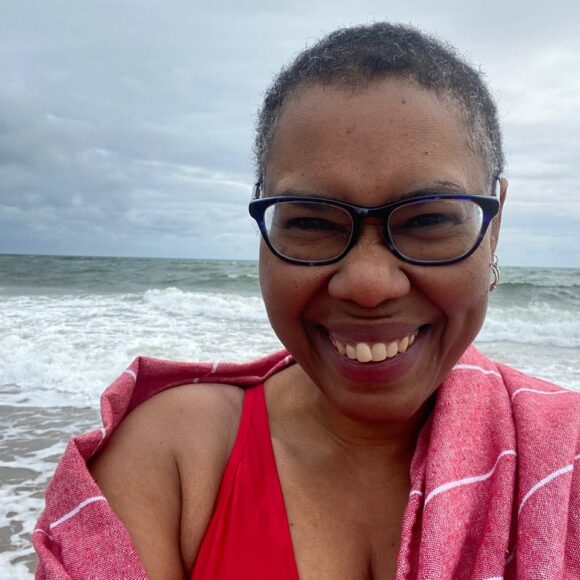
Inspired by nature: Dr Sheree Mack
-
Date posted: 30/09/2021
-
Time to read: 5 minutes

Dr Sheree Mack
Writer, poet and ‘northern lass’ Dr Sheree Mack found healing in nature after her parents’ sudden deaths. Following a traumatic social media shaming, she turned to wild swimming. Now she works with Northumberland National Park to help more people of colour access the countryside through the Black Nature in Residence programme and is working to establish a Black Nature Language.
‘Outside in nature, you are not judged, you are accepted,’ says Dr Sheree Mack. She discovered this the hard way following a series of traumatic events, which started with her father’s death from leukaemia when she was nine.
‘It was a shock because I didn’t know he was so ill and very quickly we had to move from Bradford to Newburn near Newcastle, where my mother came from,’ she remembers. ‘Newburn was semi-rural and a big change; I started walking in the fields, watching the horses and cows and taking in my new surroundings.’
She began visiting The Dean, a beauty spot with steep banks and a stream, ‘almost like a little valley. I was doing it unconsciously but I knew I felt better in the outdoors – it was my first proper relationship with nature’.
Not long after the birth of her first child, her mother died of a stroke. Distraught, Sheree turned once again to the natural world to heal her rage and grief.
She would strap her baby into his buggy and travel to the Northumbrian coast where, she says, the two of them would walk and paddle. ‘We were away from everything which reminded me of what had happened to mum and slowly, I began to feel soothed by the presence of the sea’.
A writer and poet, Sheree gained her doctorate, became published and immersed herself in the literary world. Then, around six years ago, an allegation of plagiarism saw her publicly shamed on social media. ‘My career and reputation were in ruins,’ she says.
She stepped away from social media and writing itself, turning once again to the cold, wild waters of the North Sea – this time to experience wild swimming.
Sheree recalls, ‘I would go in and felt cleansed, so many of my different identities would slip away and I would recognise myself in the water with the cliffs around; I felt the twin sense of being both powerful and insignificant. It was a case of recognising my place in the scheme of things and in nature. I’d had those healing journeys before but this was the massive turn within myself to the point where I was no longer looking outside myself for recognition or acceptance. I concluded that if I loved nature, which I did, then I loved myself and that was my healing journey.’
Being in the sea brought perspective. ‘Before, I was listening too much to the outside world; the media and the world of poetry that I was in and I began to wonder if this was really how you measure success, how you measure your worth in society.’
Sheree believes that reconnecting to herself and nature in this way ‘made me a much better person’ and started looking for different opportunities in the natural world.
However, she realised other people of colour may not find it so easy to access the natural world and enjoy its benefits.
She trained in outdoor leadership, joining All the Elements, a collaboration group which helps diverse outdoor leaders connect. ‘It amplifies the fact that we all have a right to be out there within the landscape,’ she explains.
Inspired by the Black nature writing she discovered whilst at Washington State for a project with the Jefferson Land Trust, she joined Black Nature in Residence. The initiative is co-ordinated by Identity on Tyne and funded by Arts Council England to provide opportunities for people of colour to experience the natural world.
From the African Roman soldiers who patrolled Hadrian’s Wall, to the plants from Africa and the Mediterranean that have made their way to Northumberland, Sheree believes Black people in the north are closely connected to nature, whether they know it or not.
Her aim is to get more people of colour to experience the natural world in more diverse ways. She is determined her Northumberland National Park residency will help develop a ‘Black Nature Language’ – writing from the perspective of people of colour.
It’s not, she says, about having ‘chips on our shoulders’ or that everything is about race. ‘It is about helping us come to an understanding of our bodies, being here in nature and revealing those hidden layers that are hidden for a reason – and then to bring them out in our writing. Things take time, but I don’t mind slow.’